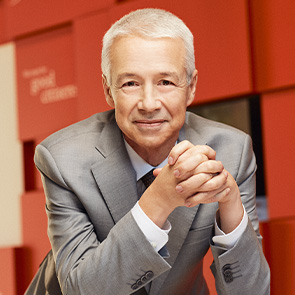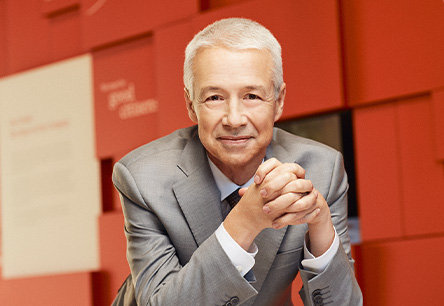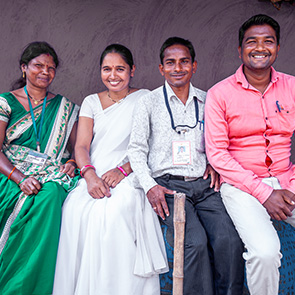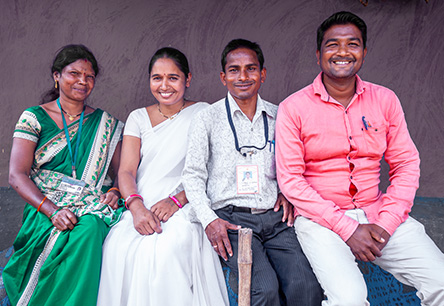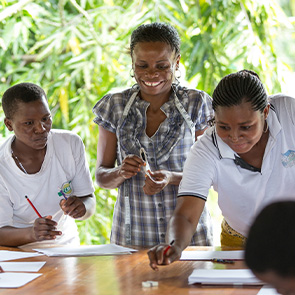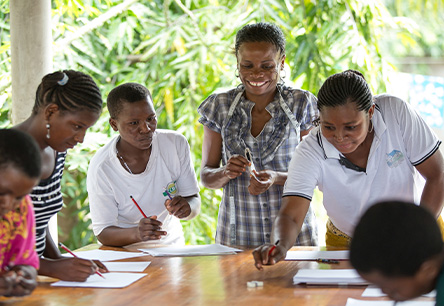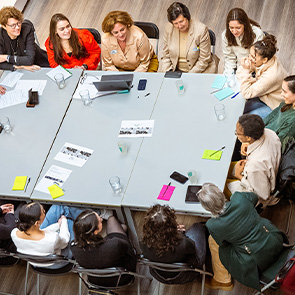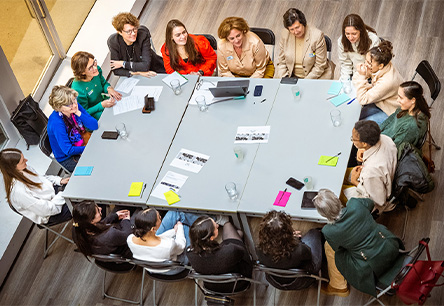We continue to advance initiatives across our facilities and throughout our supply chain to minimize our impacts on the planet through responsible use of water, avoidance of waste and reduction of waste sent to a landfill.
Water stewardship
As part of our efforts to continuously improve our management of water resources and our water stewardship, we are pursuing Alliance for Water Stewardship (AWS) certifications across elected facilities in our network. In 2022, Johnson & Johnson Consumer Health Thailand and Janssen’s Xi’an, China, facility both achieved AWS certification. The international AWS certification addresses sustainable water management and is confirmation of having met the global benchmark for responsible water stewardship. We are pursuing additional site certifications in the coming years.
Over the past five years, our water withdrawal in million m3 per $ billion sales across Johnson & Johnson globally has reduced by 5%, demonstrating efficiencies in water management alongside business growth in sales of 16% between 2018 and 2022.
Total Water Withdrawn (million m3)
Johnson & Johnson was recognized with a CDP A- rating in 2022 for our leadership in water security.
Water-saving projects in Helsingborg, Sweden
At our Consumer Health site in Helsingborg, Sweden, three new water-saving projects were completed in 2022. A newly installed chiller with a closed-loop water cooling system has reduced coolant water needs by more than half while requiring less energy to operate than the old model. Production equipment cleaning processes were also optimized and shortened to save purified water annually. Finally, an adjustment in the reverse osmosis processes and equipment service methodology was completed, saving additional water on-site.
Waste management
We continually advance initiatives across all our facilities and throughout our supply chain to systematically avoid waste, reduce waste to landfill and increase sustainable management of waste. The waste streams generated directly by our operations include hazardous and non-hazardous waste from research laboratories, manufacturing processes, warehouses and offices. Waste management initiatives progressed in 2022 included:
- Reducing hazardous waste: Our aim is to reduce hazardous waste from material-intensive API processes by implementing green chemistry and engineering principles to improve chemical conversion yields and increasing reuse and recycling of raw materials. For example, in 2022, Janssen continued a program to reduce hazardous waste from our small molecule API production at four Johnson & Johnson sites.
- Working toward zero waste: In Brazil, our teams at the São José dos Campos site, which houses manufacturing for all three business segments of Johnson & Johnson, have been working toward improving their waste management program. Since 2020, several initiatives have been put in place to advance recycling across non-hazardous waste streams, and in 2022, the site achieved its highest recycling level since the start of the program, on track to achieve its goal of being a certified TRUE Zero Waste facility. Green Business Certification Inc.’s TRUE Zero Waste certification is a program that rates how well facilities perform in minimizing their non-hazardous, solid wastes and maximizing their efficiency in the use of resources. Several new on-site waste management processes, including a waste inventory management system and internal packaging reuse systems, combined with outreach to suppliers for take-back of packaging items for reuse or recycling, have contributed to a reduction in non-hazardous waste sent to landfill from this facility.

